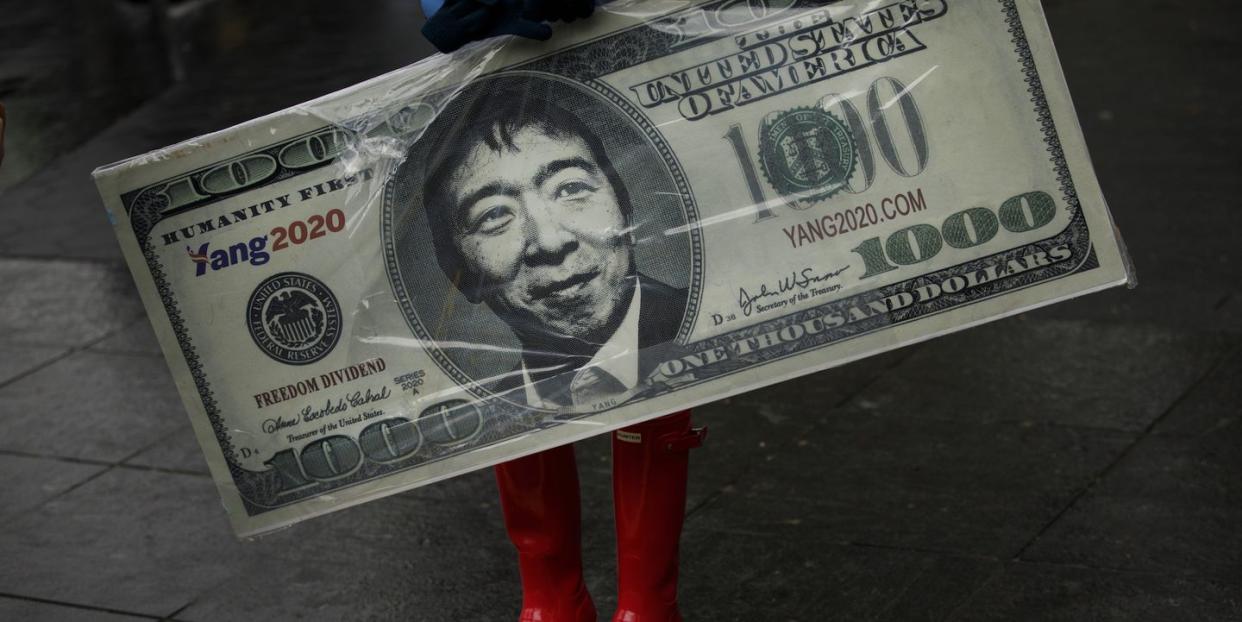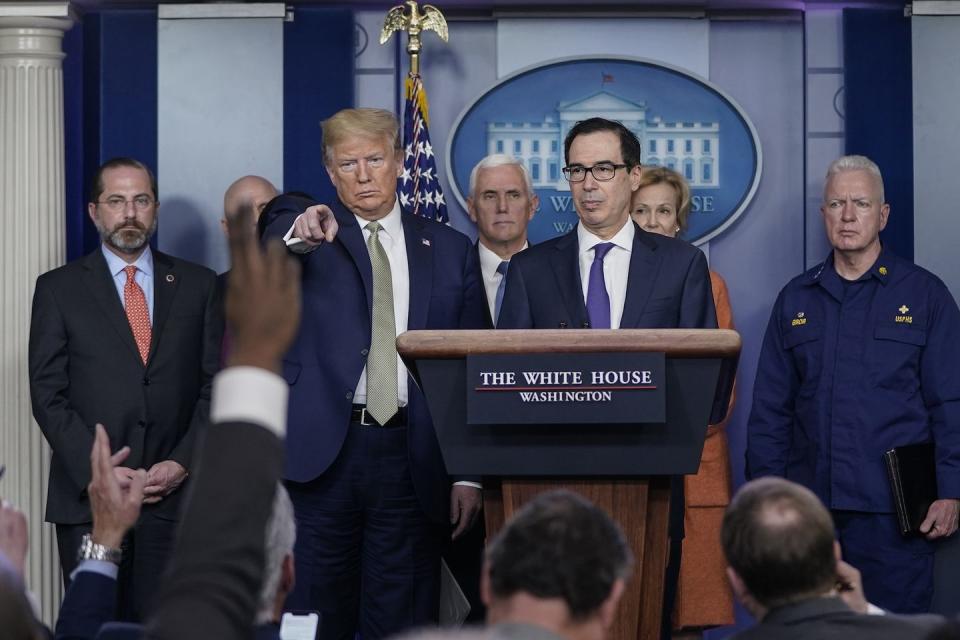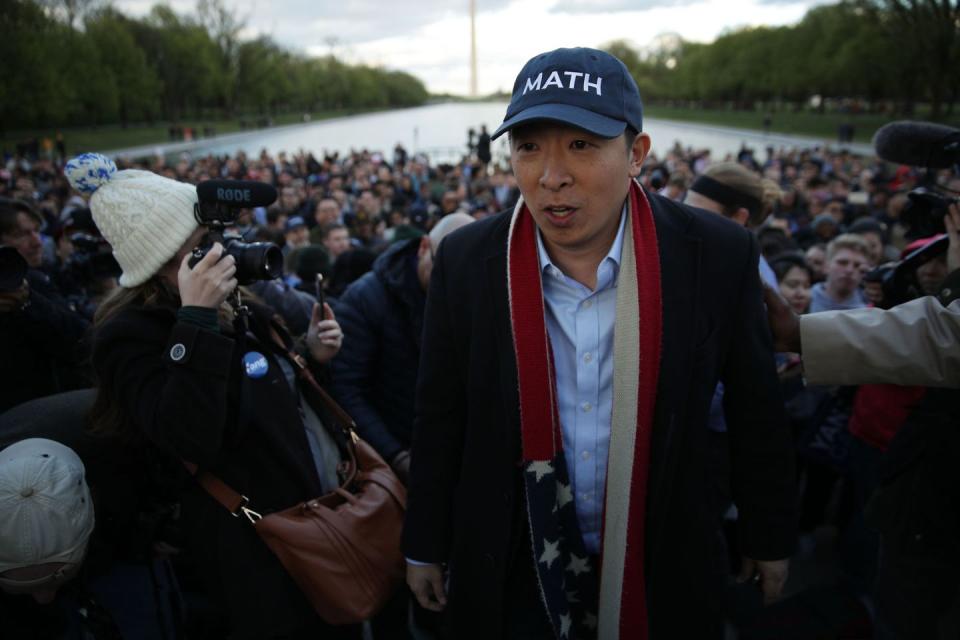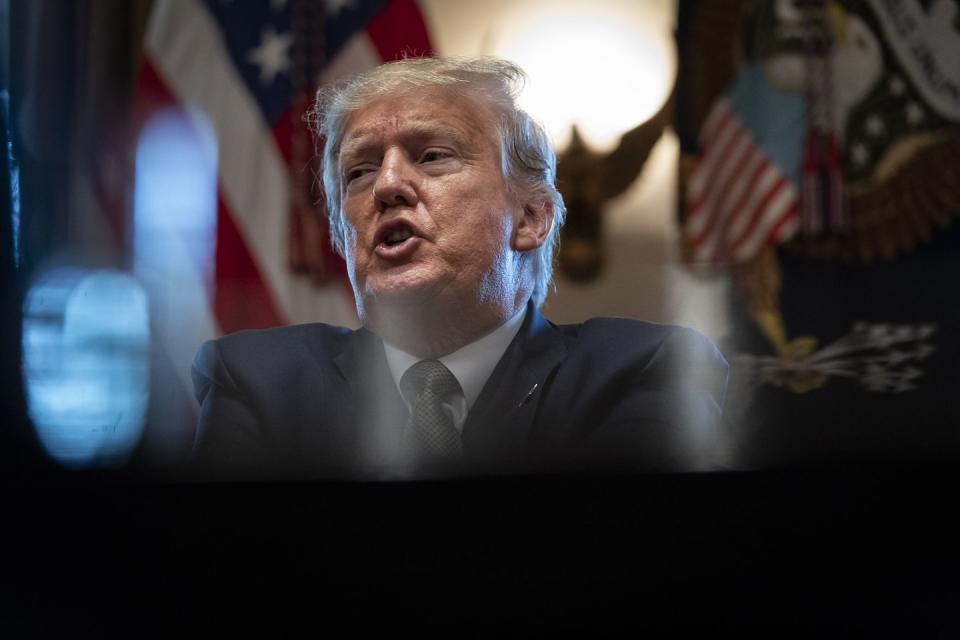As Coronavirus Disrupts...Everything, Both Parties Want to Send Every American a Check. What Does That Mean?

There are no libertarians in a pandemic, it seems, except the kind who favor universal basic income. Both of our major political parties are coalescing around a few different UBI proposals as the novel coronavirus, which causes the disease COVID-19, wreaks havoc on American business and, in particular, hourly workers. If the restaurant where you work is closed, or can't afford to employ a full staff because revenue fell off a cliff, you don't have any way of bringing money into your household. If you get laid off, you're probably not going to be able to find a job. So federal lawmakers—and Treasury Secretary Steven Mnuchin—have signaled they will move swiftly towards cutting Americans a check.
— Senator Mitt Romney (!) was among the first to get on board when he suggested sending every American adult $1,000. Mnuchin indicated the White House is interested in this.
— Senator Kamala Harris came with a weak-sauce "up to $500," then suggested she's open to more.
— A group of Democratic senators has floated a $2,000 immediate payment to every adult and child in the United States, with a possible follow-up of $1,500 between July and September and a third round of $1,000 after that. The follow-up payments would be predicated on how the economy performs in the coming months.
— Ilhan Omar will introduce a bill sending $1,000 to every adult and $500 for each child.
— Rep. Joe Kennedy came out for giving $4,000 each (!) to adults who make under $100,000 a year. Folks over $100,000 would get $2,000. For every child under 18, it's another $1,000.

Things sure have moved fast since Andrew Yang quit the Democratic primary and took his Freedom Dividend with him. We spoke with Jim Pugh, co-director of the Universal Income Project and a former Obama staffer, to get some perspective on all the factors in play here. Pugh is a strong advocate of UBI, (he'd like to see the program extend in some form beyond this crisis period), but the question now seems to be how to implement it in this scenario rather than whether to do so. Pugh pointed out a few characteristics in any prospective plan that he considers most important to its effectiveness.
— Any plan should take both adults and children into account. "Some of the people who are struggling most," he says, "are those who have kids who might have depended on them getting free lunch at school, and now don't have other childcare options and so are being particularly hard-hit." Cash for every adult is good, but adults with children will need additional cash.
— "Not treating the cash as a panacea on its own" is another focal point for Pugh. Cash in every American's pocket is not a replacement for a social safety net. We'll need paid sick leave, and not the bush league plan to cover one-in-five workers that Nancy Pelosi and the Democratic House got behind earlier in the week. We'll need to allow people to suspend their mortgage payments, and possibly have a moratorium on rent obligations. Certainly, there should be a prohibition on evictions during the crisis: why devote the resources to removing people from the places we're telling them they need to stay in the interest of public health? (Also, it's fucking barbaric.) We'll need to beef up and extend unemployment insurance, too.

— It shouldn't just be a onetime thing. This is going to go on for months, and people's needs are unlikely to go away in that time.
— One key to a successful policy will be getting people their money in a way that does not jeopardize their existing benefits—like SNAP or Medicaid—which they depend on, and which are based on income. If you suddenly have more income because of your UBI payment, that shouldn't hurt you on other counts. This was one issue with Yang's Freedom Dividend, which Pugh and other UBI advocates feared could (even unintentionally) undermine other benefits.
"If you just issue payments as a tax credit," Pugh says, "that isn't then calculated into any of those considerations, when looking at who does and doesn't qualify for those other programs. Ideally, you would want to make sure you're providing exemptions around any sort of asset limit that exists, particularly if we do end up with a program that's providing more money-up-front." If it's a tax credit, Pugh says, you can still instruct the IRS to just send out a check to people immediately—and many of the current proposals would operate this way.
— There should be a bigger payment up front (like, more than $1,000) then at least Omar's $1,000-$500 plan thereafter. But ideally it would all be bigger.

— It's not worth the time or energy or resources you'd devote to a means-tested eligibility cutoff—say, only sending checks to people who make under $100,000 a year. For one thing, Pugh points out, those decisions would probably be made based on what somebody made last year. What if they lost their job during this crisis? "The way the virus and the response to the virus are disrupting things," he says, "they could be in an entirely different economic situation now. So even though on its face it seems like having those cutoffs is very reasonable as far as getting the support to people who need it, you are probably going to have people who really do need that support who won't receive it."
— Payments should be monthly, so folks can plan around it with some security.
Pugh makes a good closing pitch. "If you consider the way that both the virus and the response to the virus are upending people's lives in drastic and unpredictable ways, the flexibility and empowerment you get from cash is just custom-made to deal with that. It gives people the resilience to be able to deal with who knows what's to come, and that's exactly what we need if we're going to keep things from getting too bad and allow people to actually recover in a real way from this."
In a vacuum, advocates have some differences in implementation based on what they are trying to achieve. Pugh cites Charles Murray as the kind of libertarian UBI advocate who wants to use it to replace the welfare state, or at least severely cut back on benefit programs. That won't help us much now. If you're Andrew Yang and you're interested in alleviating the negative consequences of automation, you'll have a different approach. And if you simply want to alleviate poverty, that's another thing, too. In our current scenario, we've got to have goals closest to the last one. Send people money—and then monitor how it works. Use this as a pilot program and compile evidence about whether a UBI might be a viable long-term policy prescription for the United States of America.
You Might Also Like

